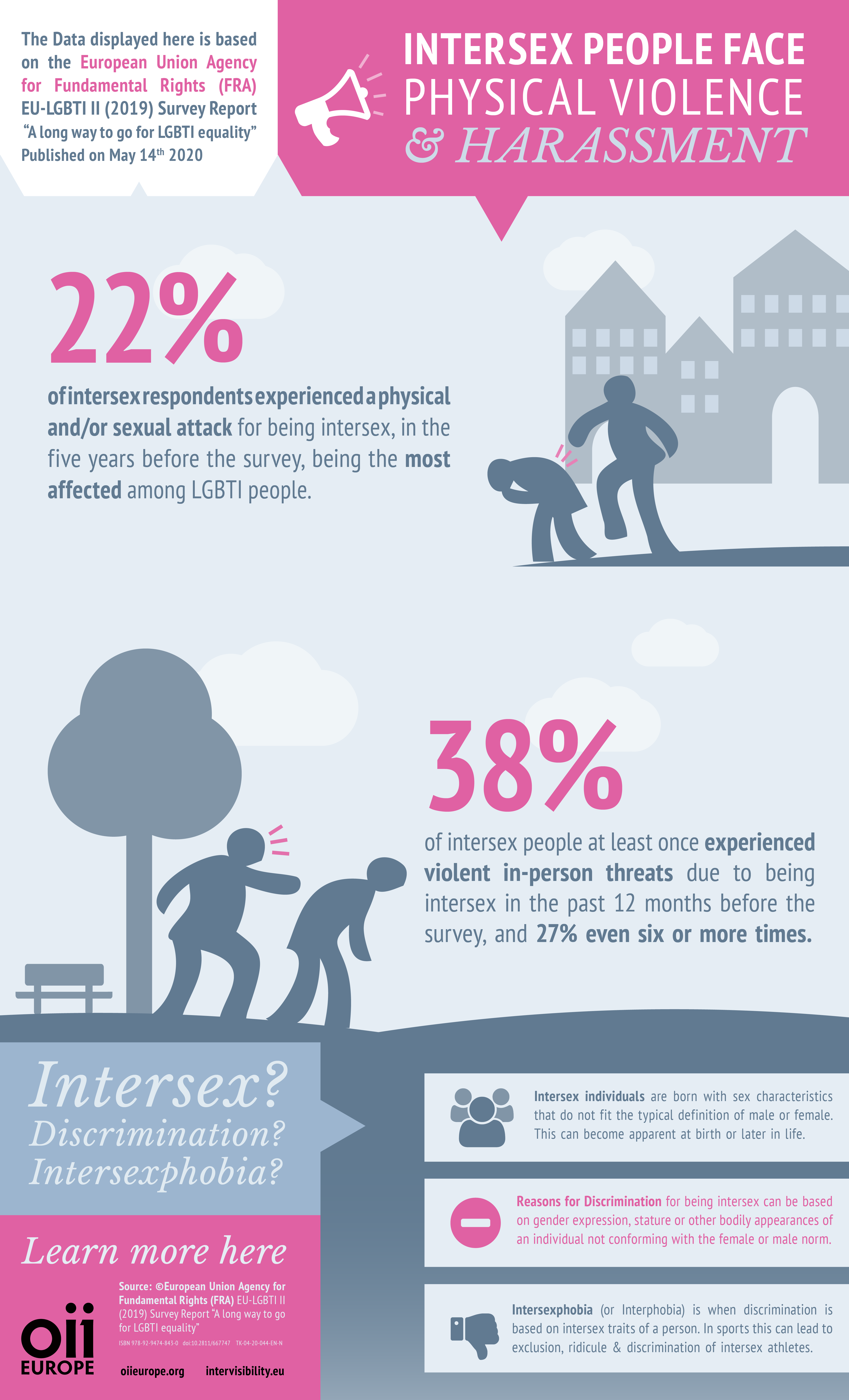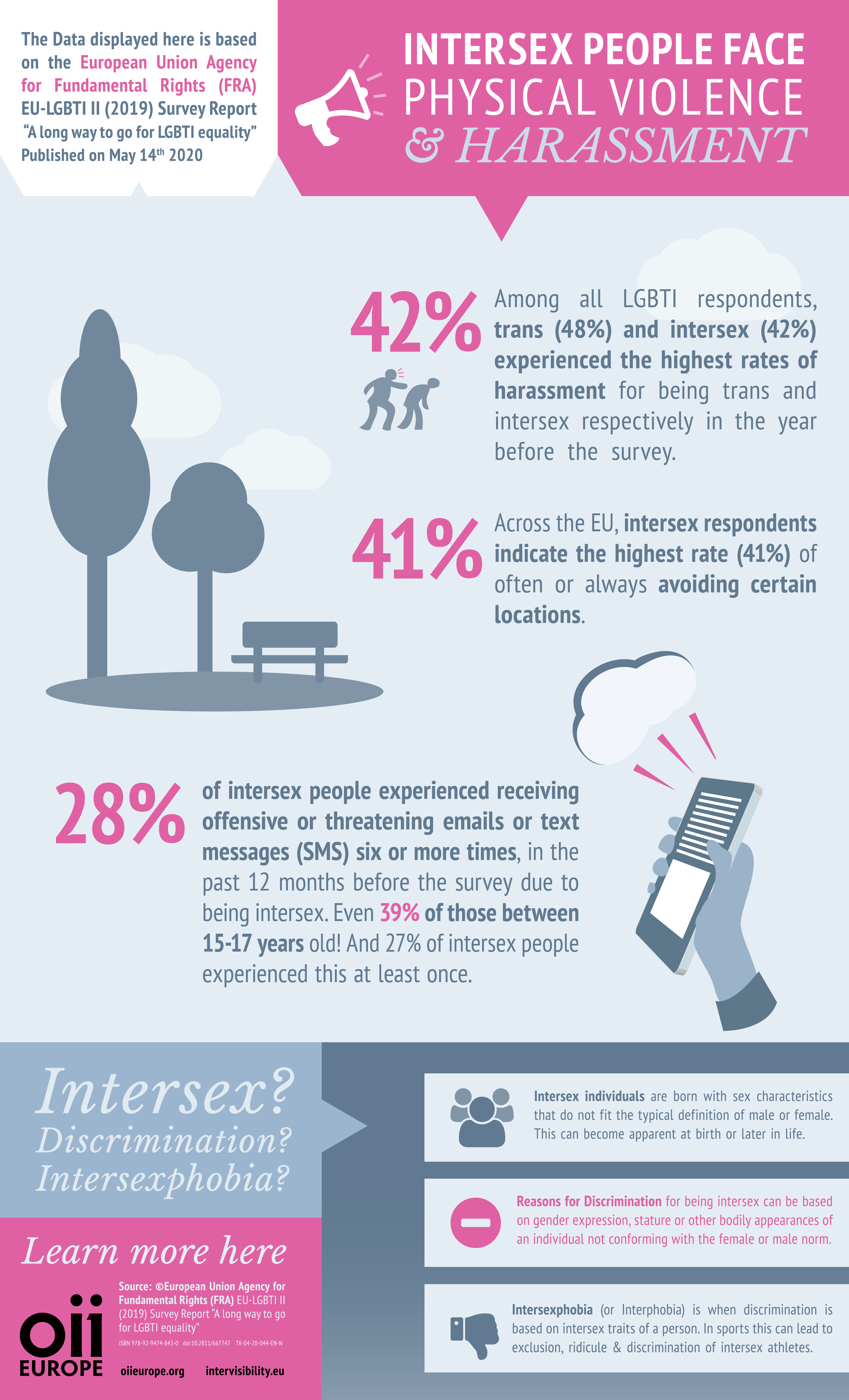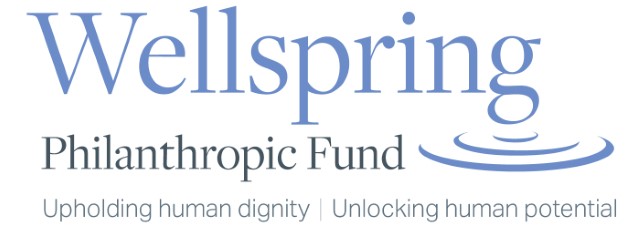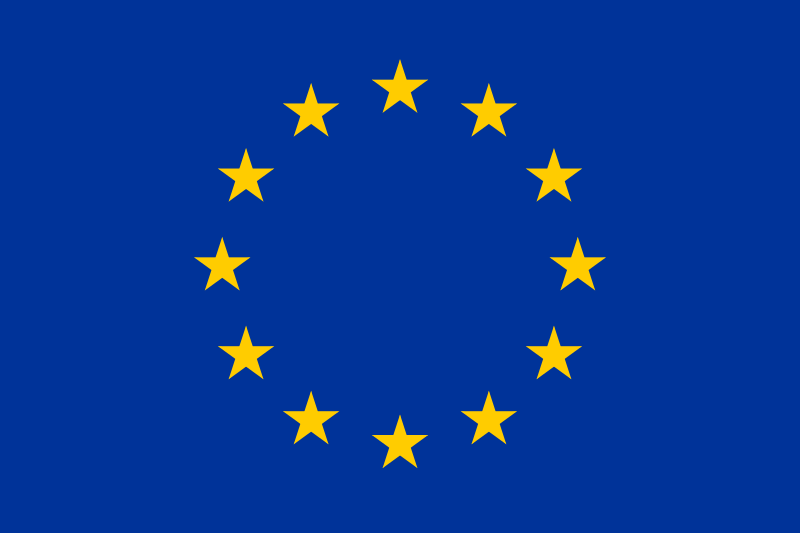Unfortunately, as the latest FRA LGBTI report reveals, many intersex people in Europe suffer from physical and sexual attack based on being intersex. They even turn out to be the most affected among all LGBTI people (see the infographic below).
Therefore, we appeal to the Yogyakarta Principles on on the application of international human rights law in relation to sexual orientation, gender identity, gender expression and sex characteristics, to urge the EU Member States to effectively protect intersex people’s fundamental right to be safe and free from harm.
In order to fulfill their obligation, States shall:
- A. Take all necessary policing and other measures to prevent and provide protection from all forms of violence and harassment related to sex characteristics;
- B. Take all necessary legislative measures to impose appropriate criminal penalties for violence, threats of violence, incitement to violence and related harassment, based on the sex characteristics of any person or group of persons, in all spheres of life, including the family;
- C. Take all necessary legislative, administrative and other measures to ensure that the sex characteristics of the victim may not be advanced to justify, excuse or mitigate such violence;
- D. Ensure that perpetration of such violence is vigorously investigated, and that, where appropriate evidence is found, those responsible are prosecuted, tried and duly punished, and that victims are provided with appropriate remedies and redress, including compensation;
- E. Undertake campaigns of awareness-raising, directed to the general public as well as to actual and potential perpetrators of violence, in order to combat the prejudices that underlie violence related to sex characteristics
(See The Yogyakarta Principles, 2006, Principle 5, as complemented by The Yogyakarta Principles plus 10, 2017, which added explicit reference to the sex characteristics).
If you want to learn more about intersex human rights violations, please visit our website and check out the Resources-section on our website
We created infographics about some of the issues intersex people in Europe face. You can find the link for the infographic on physical violence & harassement here:


Text contained in the Infographic follows here:
The Data displayed in this infographic is based on the European Union Agency for Fundamental Rights (FRA) LGBTI Survey Data Explorer & EU-LGBTI II (2019) Survey Report “A long way to go for LGBTI equality” Published on May 14th 2020
22% of intersex respondents experienced a physical and/or sexual attack for being intersex, in the five years before the survey, being the most affected among LGBTI people.
38% of intersex people at least once experienced violent in-person threats due to being intersex in the past 12 months before the survey, and 27% even six or more times.
- Among all LGBTI respondents, trans (48%) and intersex (42%) experienced the highest rates of harassment for being LGBTI in the year before the survey.
- Across the EU, intersex respondents indicate the highest rate (41%) of often or always avoiding certain locations.
- 28% of intersex people experienced receiving offensive or threatening emails or text messages (SMS) six or more times, in the past 12 months before the survey due to being intersex. Even 39% of those between 15-17 years old! And 27% of intersex people experienced this at least once.
Intersex? Discrimination? Intersexphobia?
- Intersex individuals are born with sex characteristics that do not fit the typical definition of male or female. This can become apparent at birth or later in life.
- Reasons for Discrimination for being intersex can be based on gender expression, stature or other bodily appearances of an individual not conforming with the female or male norm.
- Intersexphobia (or Interphobia) is when discrimination is based on intersex traits of a person. In sports this can lead to exclusion, ridicule & discrimination of intersex athletes.
Learn more here:
https://www.oiieurope.org (this page)
https://www.intervisibility.eu
Source of Data displayed: ©European Union Agency for Fundamental Rights (FRA) LGBTI Survey Data Explorer & EU-LGBTI II (2019) Survey Report “A long way to go for LGBTI equality”
ISBN 978-92-9474-843-0 • doi:10.2811/667747 • TK-04-20-044-EN-N
Page updated: 11.01.2023










